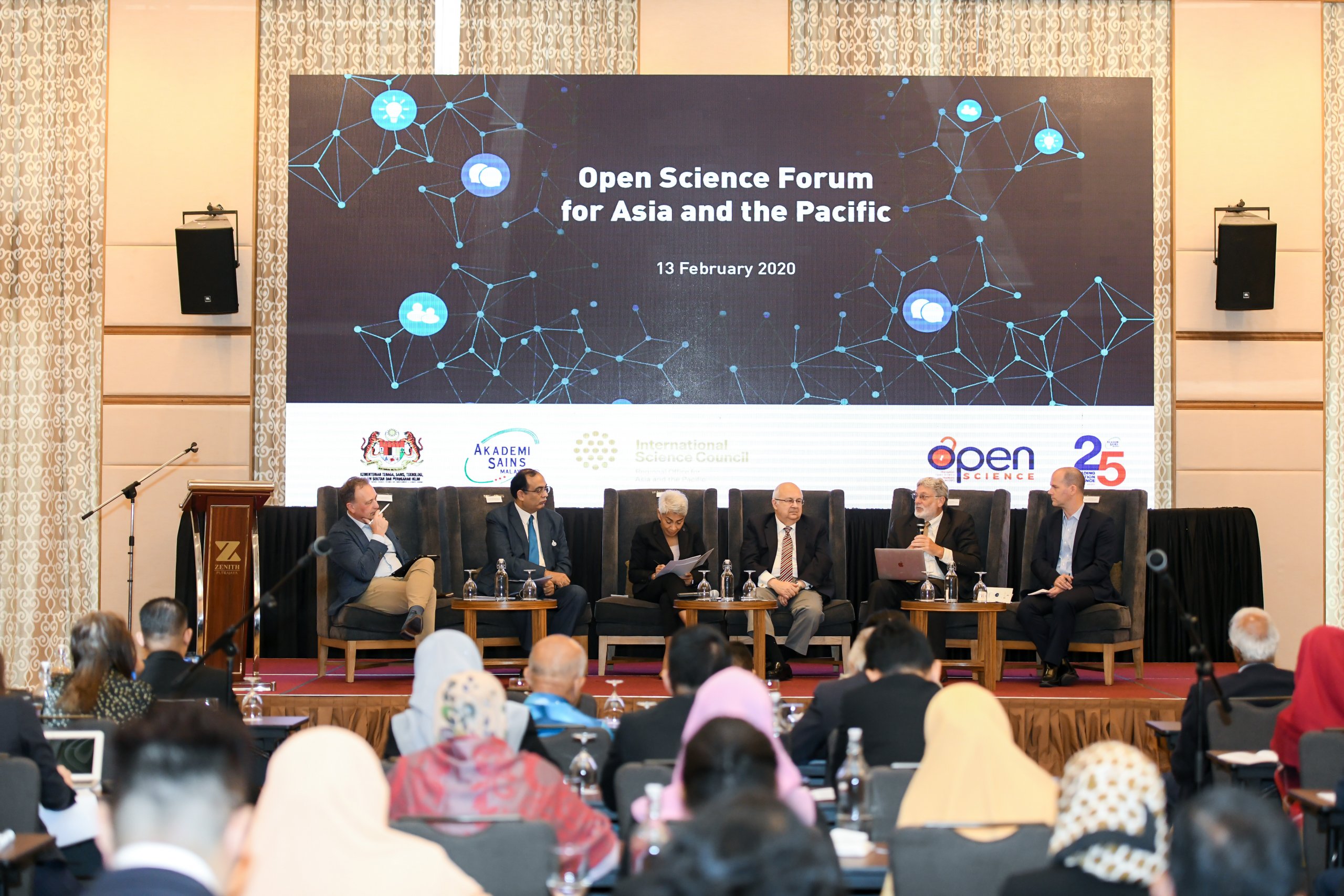
The Forum was organized to promote open science as the way forward for the region, and was held in conjunction with the meeting of the Asia-Pacific Economic Cooperation (APEC) Policy Partnership on Science, Technology and Innovation (PPSTI).
ISC Patron Ismail Serageldin gave a keynote speech on ‘Open Science for Shared Prosperity’, stressing the role of open science in increasing regional collaboration in solving regional and global issues. The value of science as practised collaboratively and globally can only come through openness. Open science would also enable greater potential for South-South collaboration and provide opportunities for low- and middle-income countries to participate in major scientific research.
This was followed by a panel session on ‘Open Science for Shared Prosperity in Asia and the Pacific’. Panelists included Barend Mons of CODATA, Shahbaz Khan of UNESCO Office Jakarta, Simon Goudie of Research Data Alliance and Ross Wilkinson, former director of the Australian National Data Service. Each panelist presented their work and addressed common misconceptions surrounding open science.
The Forum then discussed the Open Science Joint Statement that was later presented at the APEC PPSTI meeting. The statement emphasizes the importance of open science for the region and recommends that APEC recognize it as a priority area moving forward.
The second part of the Forum saw in-depth discussions on the three important components of an open science initiative: policy, infrastructure and capacity building and awareness. Speakers included representatives from the Association of Pacific Rim Universities (APRU), the Organization for Economic Cooperation and Development (OECD) and the Malaysian Open Science Alliance. All speakers agreed that for an open science initiative to be a success, all three components need to be addressed simultaneously by all stakeholders.